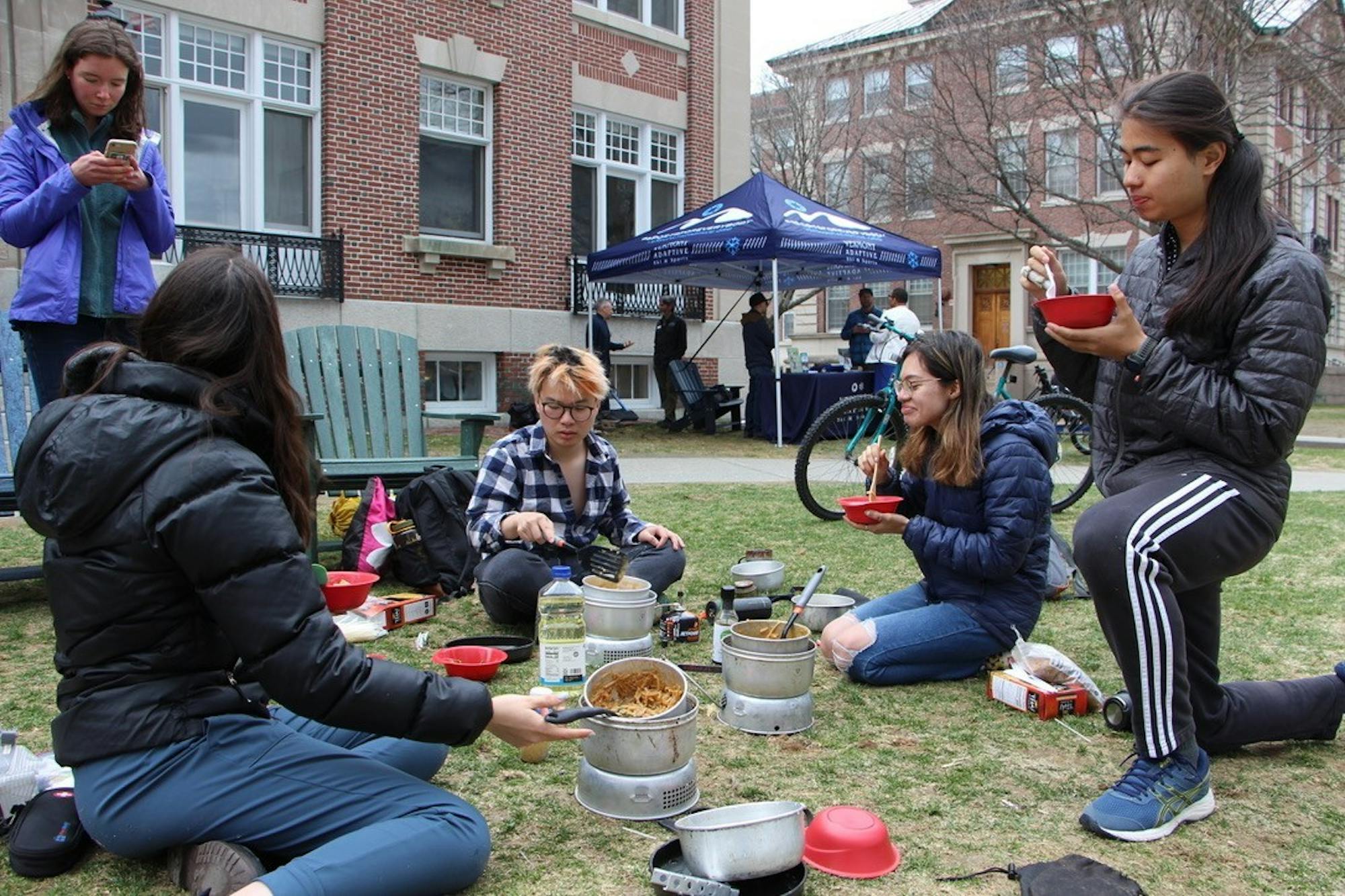From April 13 to 18, the Dartmouth Outing Club hosted its first ever “All Outside” conference, organized by Abigail Johnson ’23, Jessica Chiriboga ’24 and Kate Wasacz ’25 to foster greater equitable and inclusive access to the outdoors. The event lineup included panels, beginner outdoor skill sessions, workshops, an overnight cabin trip, beginner outdoor trips and a culminating dinner at the DOC house.
Johnson said that the conference’s mission — to improve access to the outdoors among underrepresented communities — involved inviting guest speakers to have conversations with students about accessibility and the outdoors within the DOC, at Dartmouth and beyond. Conference speakers included hiker and chef Kena Peay, Atowi Project director Rich Holschuh, Disabled Hikers founder Syren Nagakyrie, Adaptive Climbing Group founder Kareemah Batts, QPOC Hikers founder Jasmine Maisonet and Vermont Adaptive director of strategic partnerships Jeff Alexander.
“Whether you’re involved in the DOC or not, we’re trying to create opportunities for anyone at Dartmouth to get outside,” Johnson said.
Johnson, who is also president of the DOC, said that she and the other organizers initially reached out to people they thought would create a “meaningful collaboration” with the DOC and planned events from there. Johnson added that many of the conference events focused on accessibility in the outdoors for people with disabilities — a topic she believes has not been addressed by the DOC as much as it should be.
“I think [accessibility for people with disabilities] is something that, as an outing club, we haven’t talked about as much as we might talk about how race, or ethnicity, or socioeconomic status or gender or sexuality might affect how people feel welcome,” Johnson said. “...I think this is something that will make a club more welcoming for anyone, whether they’re able-bodied or not.”
Following the conference, Johnson said that one thing she hopes the DOC will improve is making its trip descriptions on Trailhead — the DOC’s trip signup website — more detailed, so that people know exactly what sort of trip to expect when they sign up.
“Oftentimes we try to make [Trailhead descriptions] really fun, and get people excited about the trip — and then sometimes in doing that, we don’t actually address well enough: ‘What can you expect on this trip?’” she said, adding, “So thinking about giving the mileage and the elevation of every hike, but in addition to that also saying, ‘well, what is the actual path, how wide is it [and] what is the grade, in a way that is not just [mileage and elevation].”
Lucy Rathgeb ’22, an attendee of All Outside, said that she hopes the DOC will keep organizing conferences like this one to start more goal-focused conversations about inclusion.
“I’ve had a few conversations about accessibility within the DOC, but definitely not enough, and [they are] usually instigated by the people that are feeling left out,” she said.
Chiriboga said she felt Batts’ keynote speech about how to support disabled people in the outdoors and in general was especially important and “eye-opening.”
“What I really enjoyed about [Batts’] conversation is [that] she emphasized that diversity is more than just a color — diversity is also about diversity of experience, diversity [in terms] of disability in the outdoors,” she said. “I think that at Dartmouth [having] a lot of buildings — either Greek spaces, or residential buildings, or academic buildings — that are not at all accessible, is something that we can be very ignorant of.”
Evelyn Hatem ’24, who also attended Batts’ keynote remarks, said that her takeaway from the speech was the importance of asking if DOC trips are accessible for everyone — and if they are not, asking how the club can make these experiences more accessible.
“I appreciated how [Batts] framed [her discussion] as, ‘These are a few questions that you should ask yourself –– when leading a trip, or otherwise in a position of leadership –– about how to be more inclusive and create more equitable experiences,’” she said.
Johnson said that the conference had a turnout of approximately 90 people, with some “last-minute cancellations” due to COVID-19. She said she hopes that the conference will run again in the future and that it will facilitate positive changes within the DOC.
“Each conversation that [I] went to, there’s something that stuck in my head like, ‘Oh, I want to change this thing,’” Johnson said. “It might not be a huge change, but when you accumulate enough of those, and when you get enough people doing them, then it ends up [creating] a much bigger change.”
Chiriboga is a former member of The Dartmouth staff.
Kristin Chapman ’24 is an English major and Spanish minor from Rye, New York. She currently serves as the editor-in-chief and previously wrote and edited for the News section. In her free time, she enjoys reading books, running, hiking and doing yoga.




